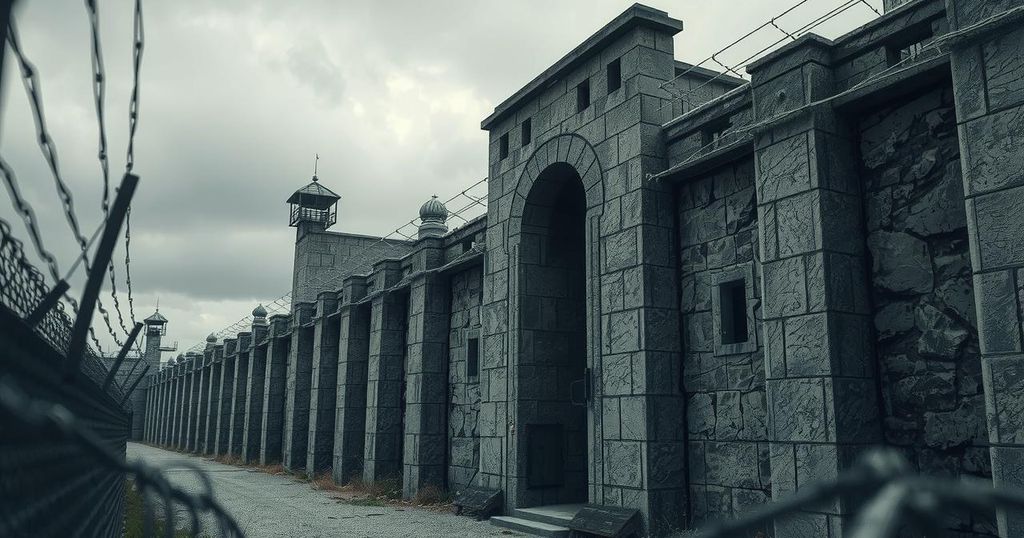Michael Safi’s recent investigation in north-east Syria reveals the dire conditions within prisons holding suspected Islamic State fighters, with individuals detained without charge. Kurdish authorities are urging foreign nations to reclaim these fighters while simultaneously facing the looming threat of ongoing attacks from IS militants, aggravated by potential geopolitical shifts impacting support and supplies.
Michael Safi recently reported from north-east Syria, an area under the control of the Kurdish-led Syrian Democratic Forces. This region houses suspected foreign fighters affiliated with the Islamic State, including individuals from the United Kingdom, who have been imprisoned without trial, facing indefinite detention without clarity regarding their release dates.
During his visit, Michael and fellow journalist Will Christou spoke with a former British surgeon from Leicester. The surgeon recounted a remarkable tale of being deceived into crossing from Turkey into Syria. They also encountered an Australian inmate who confessed to his affiliation with the Islamic State and revealed that his family had been unaware of his situation for years.
The Kurdish authorities managing these facilities are advocating for foreign governments to repatriate their nationals affiliated with IS, but many nations have turned a deaf ear, opting instead to distance themselves from this troubling legacy. Concurrently, the situation for women and children from areas previously controlled by IS remains precarious, with many held in local camps as their home countries refuse to engage.
Furthermore, the threat of Islamic State operatives persists as they continue to conduct attacks in the region, as highlighted by journalist Baderkhan Ahmad. He noted a significant incident two years ago at the Panorama detention center, resulting in hundreds of casualties, with 400 inmates still missing after the conflict.
Amidst these challenges, global political dynamics are amplifying concerns regarding the safety and stability of these prisons and camps. The potential withdrawal of U.S. troops from Syria under the Trump administration raises alarms for prison managers, especially compounded by budget cuts from USAid which previously affected the delivery of essential supplies to the camps. Even though funding has been extended, uncertainty remains about its longevity and sustainability.
The situation in north-east Syria, particularly regarding Islamic State prisoners, is dire and complex. With many detainees held without charge and foreign governments reluctant to repatriate their nationals, the plight of these individuals, alongside vulnerable women and children, is becoming increasingly critical. The continuing threat posed by IS fighters and the instability resulting from shifting political landscapes further exacerbate the challenges faced by the Kurdish authorities managing these facilities.
Original Source: www.theguardian.com




